I am struggling to force the measure CountTopPromos to be contextual.
Currently it is calculating a count of all the tuples in TopX. Against the version of AdWrks that I am running this is 14.
How do I force a context, of the current year, onto the measure CountTopPromos
WITH
SET FullSet AS
NonEmpty
(
[Date].[Calendar].[Calendar Year].MEMBERS
*
[Promotion].[Promotion].MEMBERS
,[Measures].[Reseller Order Count]
)
SET TopX AS
Generate
(
[Date].[Calendar].[Calendar Year].MEMBERS
,TopPercent
(
[Date].[Calendar].CurrentMember
*
Extract
(
FullSet
,[Promotion].[Promotion]
)
,90
,[Measures].[Reseller Order Count]
)
)
MEMBER [Measures].[CountTopPromos] AS
Count(TopX) //<<<<<<<<<<<< CONTEXT LACKING HERE <<<<<<<
SELECT
NON EMPTY
{[Measures].[CountTopPromos]} ON 0
,{TopX} ON 1
FROM [Adventure Works];
Currently it returns the following:

I'd like CountTopPromos to be in the context of the year so the desired output is as follows:
